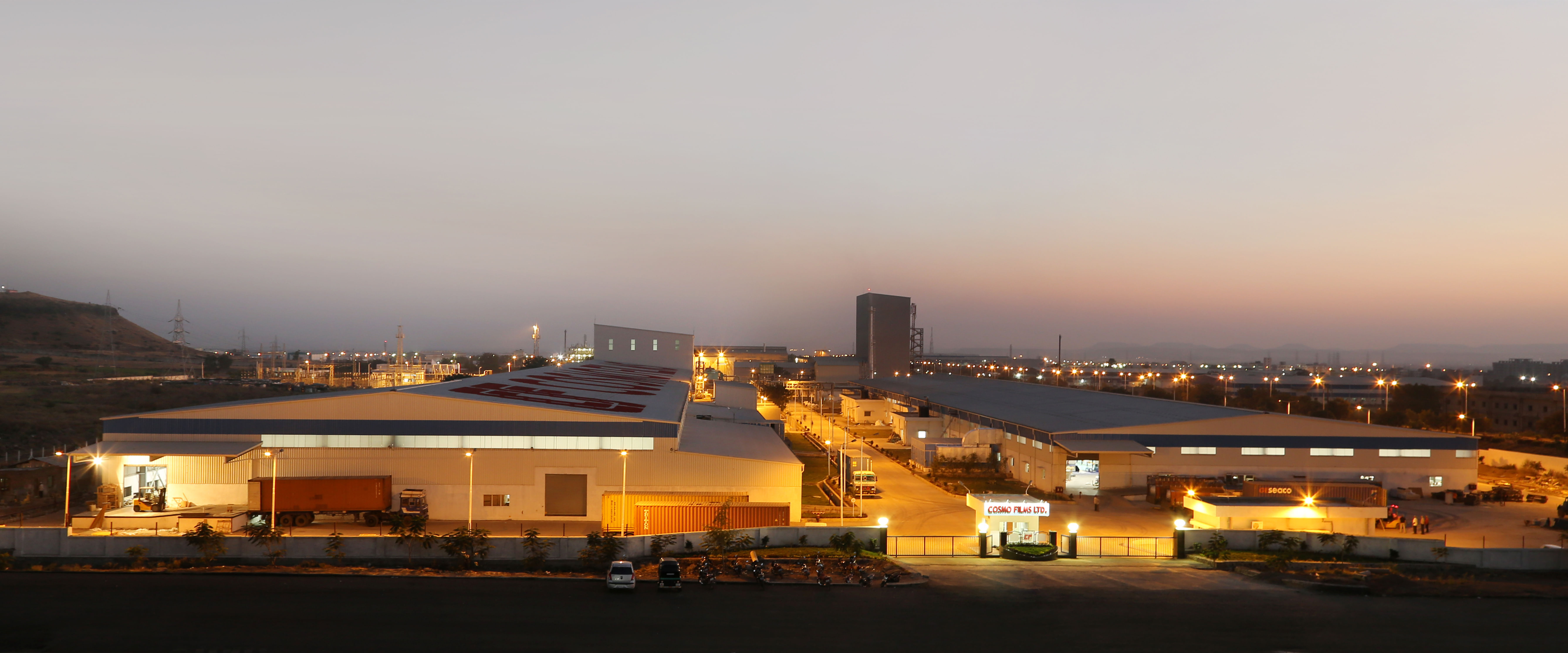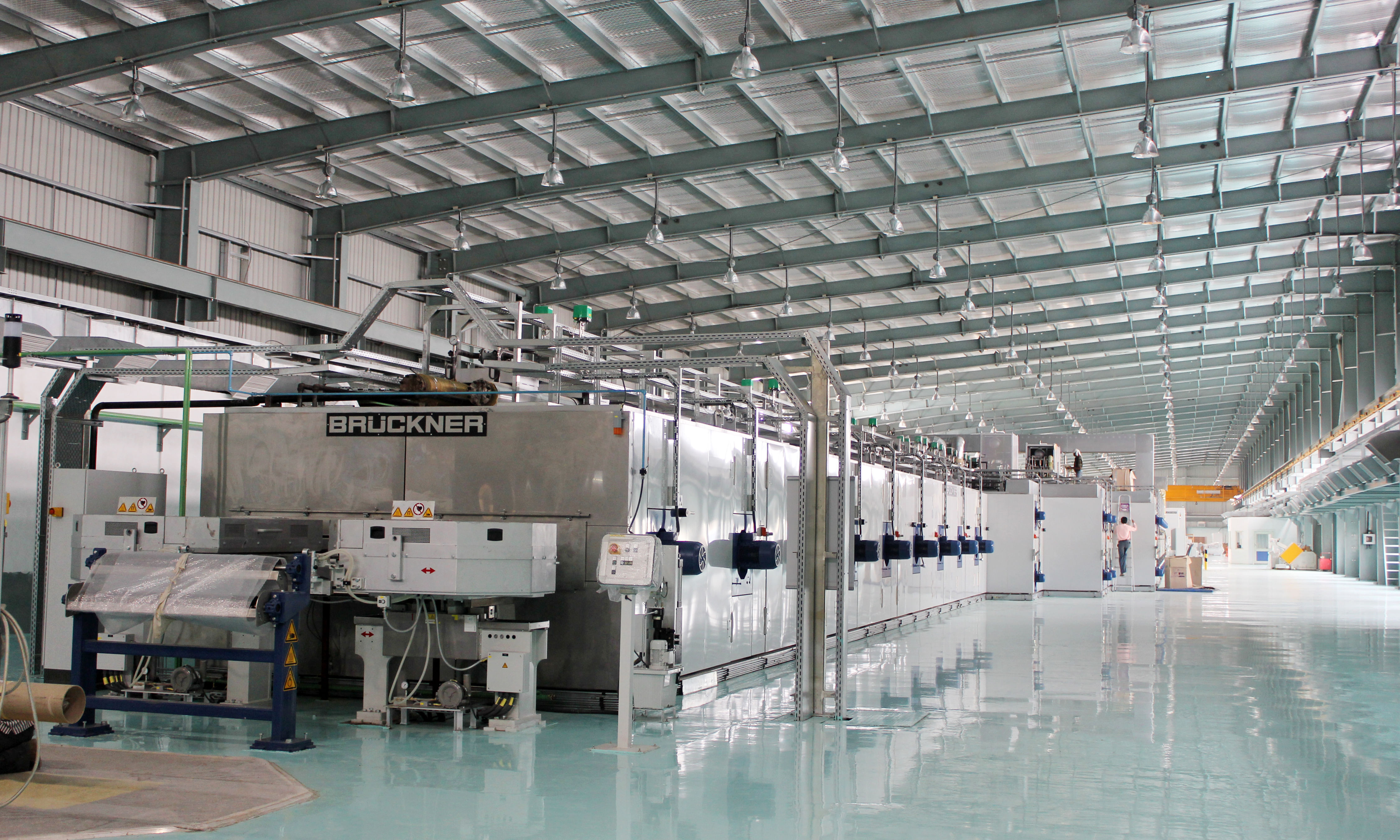Sustainability and innovation go hand in hand ...
Sustainability is a wide concept, one which involves the proper implementation of the 3 R’s, i.e. Reuse, Recycle and Reduce, in order to build a truly circular economy. Looking at it from a broader frame, sustainability is a concept which if acted upon today, will help save the environment we live in for the future. Pankaj Poddar the Group CEO of Cosmo Films engages with Rahul Kumar of WhatPackaging? magazine.
06 Mar 2023 | By Rahul Kumar
Rahul Kumar: The Ellen McArthur Foundation released a report that estimated that by 2050 the plastic in the oceans will outweigh the fish.
Pankaj Poddar: Several brands, converters and manufacturers are taking steps to reduce their plastic consumption, and aid in the process of recyclability. Big brands like Coke and HUL have proposed to reduce their plastic consumption and shift to recycled plastic by 2025. This has also led to manufacturers like us to come up with solutions which are not just effective, but also environmentally viable.
Rahul Kumar: One concrete step the industry in India can take to prevent this?
Pankaj Poddar: BOPP based flexible packaging is one of the solutions. BOPP as a material is flexible, and its properties can be altered easily to replace and convert non-recyclable multi layered structures to completely recyclable mono material multi layered structures. Also, there is a dire need for governments and households to segregate their waste in a proper manner.
Recyclability of plastics needs to be a key focus rather than removing it from the chain, since plastic production has the least amount of carbon footprint when compared to its counterparts i.e., glass and paper.
Rahul Kumar: What should a converter/brand do to improve the recyclability of BOPP in the value chain?
Pankaj Poddar: The shift from multi material packaging structures to mono material structures is the way ahead to improve plastic recyclability. BOPP is a versatile polymer on its own.
Rahul Kumar: Can the industry re-engineer manufacturing practices so that we can operate sustainably at better efficiency levels while ensuring utmost profitability?
Pankaj Poddar: At Cosmo Films we are making films which can easily replace PET films or even Aluminium foils in multi layered packaging structures to make them completely PP based. This structure has an inherent capability of getting recycled easily without any segregation of layers. The outcome of PP based recycled plastic is that we can get almost close to virgin polymers which can be further reused without major deterioration in cost. This makes it a sustainable, yet profitable model.
We have also created films which can help in structure rationalisation by reducing the number of layers in a multi layered structure, thus helping in reducing plastic consumption as well.
Shendra plant, Aurangabad
Rahul Kumar: There were also a lot of new product launches (over 5,000 as per the Nielsen report) over the past 12 months. Isn’t this unusual? What kind of conversations (especially about sustainability) has Cosmo been having with top brands during this period? Any interesting product launch?
Pankaj Poddar: Well there are several new products which we have engineered keeping in mind the concept of sustainability. We have developed a host of products keeping sustainability in mind. One is synthetic paper; where we are able to replace pulp based paper which involves cutting down trees, while improving the life and durability for the application in question. Secondly, to make packaging structures recyclable, we made a heat resistant film for easier pouching without compromising on aesthetics, printability, machinability and user friendliness.
This film has vast applications in most F&B products including noodles, soap wrappers, washing powder, tube packing, tea pouches, shampoo pouches and more. Our Ultra High Barrier Film has been engineered to replace aluminium foil in a multi-layered structure, making the structure completely recyclable.
Rahul Kumar: Effective and sustainable?
Pankaj Poddar: Yes. Products today are focusing on both effectiveness and sustainability. The industry is changing every day to research and develop products which help brands fulfil their commitments towards the environment.
Rahul Kumar: How so?
Pankaj Poddar: At Cosmo Films, we have an expert R&D team, which works tirelessly to engineer products which are not just effective, but also environmentally friendly. Cosmo works with the Government of India (GoI) in terms of understanding recycling and waste practices. Key GoI guidelines for the 3Rs which everyone in our industry must follow.
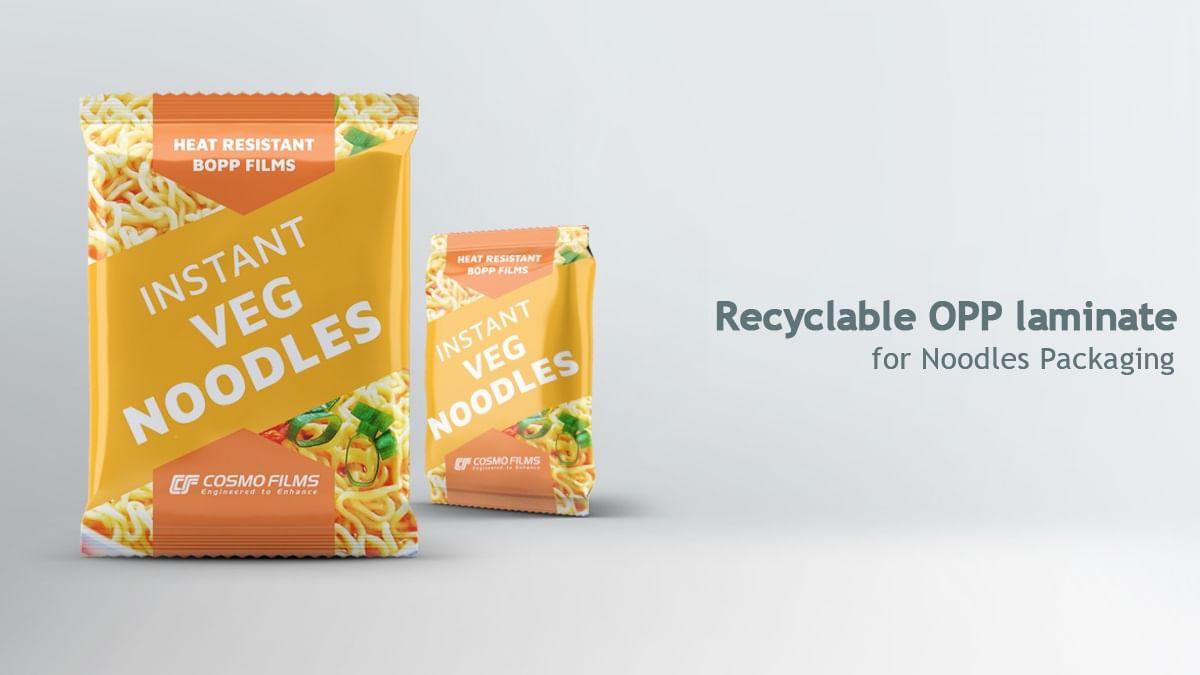
Rahul Kumar: Such as?
Pankaj Poddar: Some of the areas where the government is currently working and needs to improve are: promoting waste segregation at homes; creating a better infrastructure across the country for waste processing and recycling; and creating and regulating policies pertaining to waste generation and incoming waste from other countries.
Rahul Kumar: Is there a Green Gap between what our industry talks about; and the rest of society? For example, our industry uses terms like “biodegradable” and “circular economy”.
Pankaj Poddar: Like all other industries, our industry is also evolving every day, with new innovations and practices which help the environment. Plastic packaging has played an important role in the reduction of carbon footprint, which is way lower during production and transportation when compared to the other alternatives available (namely glass and paper). However, poor waste management infrastructure in most parts of the world has led to the widespread noise about the environmental implications of plastic packaging which has heightened consumer awareness on the issue.
This has resulted in several global brands and packaging manufacturers to look at recyclable packaging solutions and reusing the already available recycled material. Therefore, without a doubt, sustainable packaging is the need of the hour to help facilitate a circular economy and create a better world for our future generations.
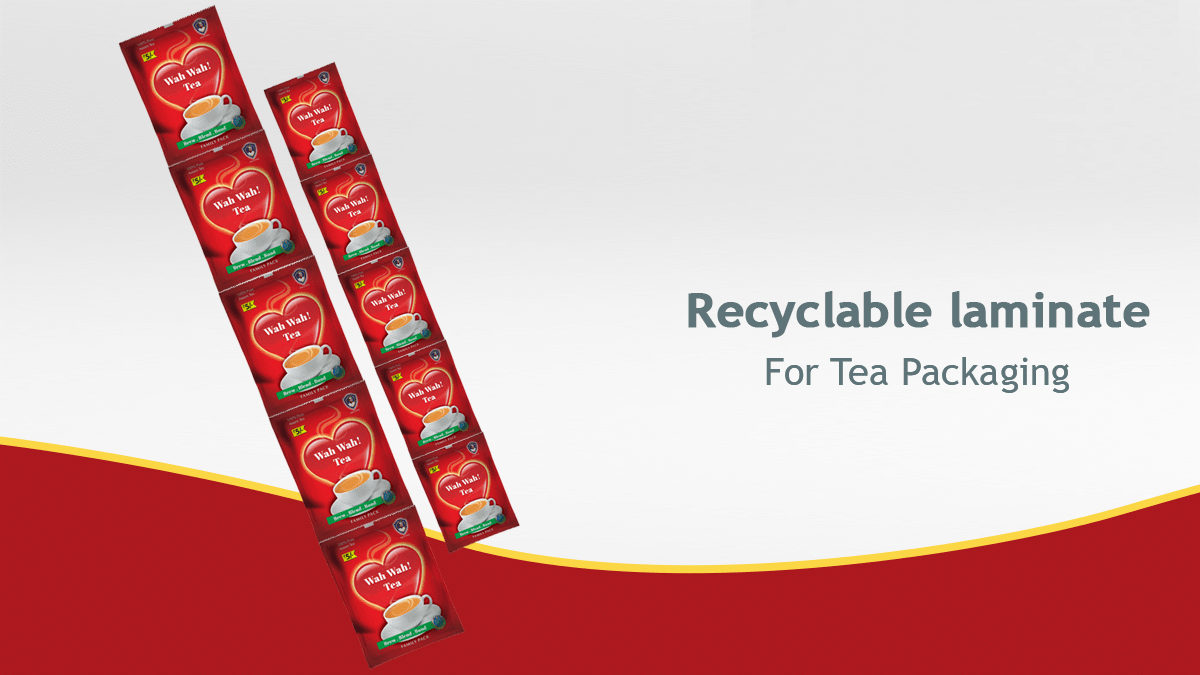
Rahul Kumar: How does Cosmo manage the circular economy and how do you ensure you and your partners maintain the sustainability criteria?
Pankaj Poddar: Cosmo Films is working very closely with several FMCG brands to understand their needs, the needs of the consumer and is then helping them to develop easy to recycle packaging laminates for their products, without compromising on the different functionalities that a particular packaging is supposed to provide.
Rahul Kumar: In what way?
Pankaj Poddar: We have successfully helped brands develop and commercialise recyclable packaging for noodles, soaps, shampoos sachets, ketchup in squeezable format, tea pouches etc. We do this by making packaging construction mono-material/homogeneous in nature which means that the multiple layers used to impart different functionalities belong to the same family of plastic polymers. This enables single step recycling and also in the creation of good quality polymers which can be used for several applications; enabling cost effectiveness and ease of recycling.
Pankaj Poddar – sustainable and innovation guidelines
On sustainability: The concept of sustainable manufacturing is garnering extensive attention from environmentalists in industrial operations. More specifically, sustainable manufacturing involves implementing sustainable manufacturing processes and systems that minimise negative environmental impacts, minimally consume material, energy and other resources, are safe for all stakeholders, and are economically sound and societally beneficial.
On research and innovation: It becomes extremely important to keep researching and implementing new innovations. In the broad plethora of the packaging sector, while the scope is continuously increasing, customers are moving away from traditional ways and methods of packaging and looking for solutions which are easy on the environment and provide a value for their bucks as well.
On plastics and BOPP: As a basic concept, plastics were a revolution, as it helps minimise carbon footprint in a very significant way as compared to any of its other substitutes. Moreover, BOPP (Bi-axially Oriented Polypropylene films) is an environment friendly material being recyclable at low temperatures, and it consumes low power while being manufactured. Also, several barrier films protect the inside product from infections, moisture, chemicals and oxygen; helping them stay fresh and disinfected. This in turn helps reduce food wastage which was otherwise prevalent in the past.
On global BOPP growth: Global BOPP film demand continues to see healthy growth despite the backlash against plastic packaging. In fact, the issue of recycling and sustainability has created a favourable set of circumstances for the BOPP film sector. As part of a circular economy, brands are being pressured to find more environmentally-friendly ways of packaging their products. This has caused a shift in focus from multi-material and multi-layer laminates, which are currently non-recyclable, to mono-material laminates.
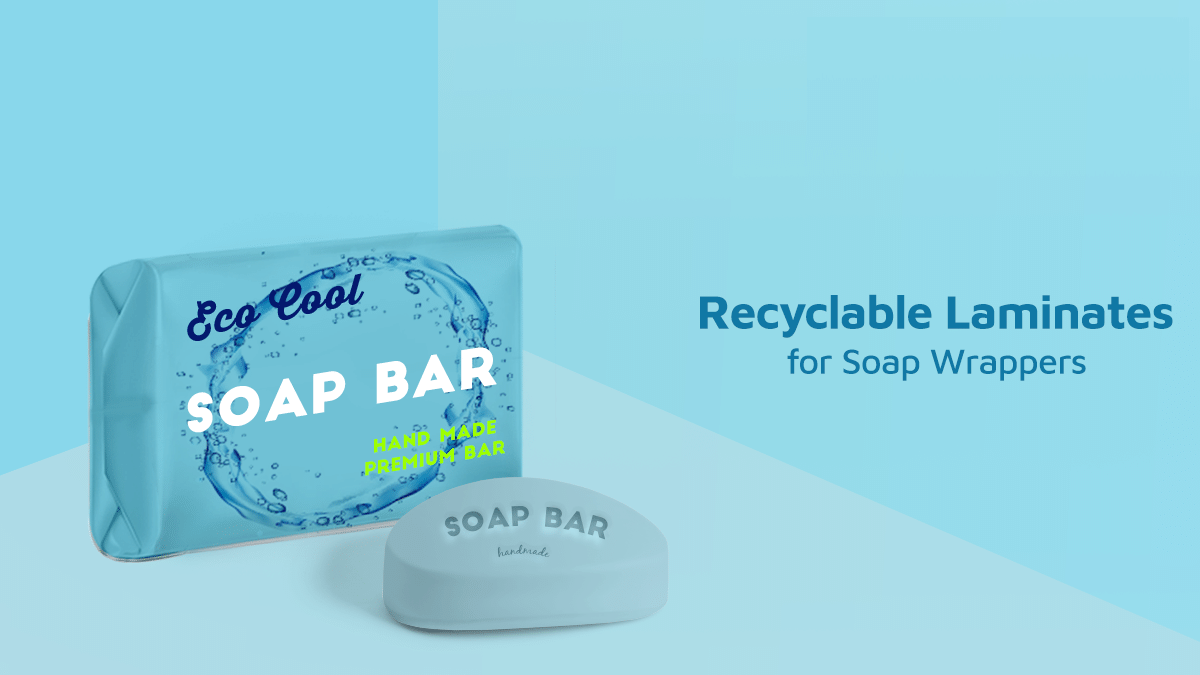
On Cosmo’s credo: Cosmo Films is a focused BOPP player, and is working extensively to reduce its production carbon footprint. Our solutions are engineered to suit the requirements of our customers, and with an extensive team of research scientists, we make sure that our products are easily recyclable, and hence easy on the environment.
On the chemical industry: The chemical industry is by far, one of the biggest polluters of water across the world. The waste generated from the production of these chemicals is directly dumped into water bodies without being treated, which render the fresh water bodies polluted. In India, the specialty chemicals industry is highly cluttered and un-organised, and needs a major reform in terms of innovation, to make it sustainably viable. The primary effect of the chemical industry on environment and on lifestyle as well, is due to the pollution, arising from the industrial activities, resulting in gas emissions, wastewater polluting the natural ponds and underground water, solid and slurry waste, polluting the soil and underground water, if not treated.
On global players: Fortunately, there are some global players in the market which are trying to help save the environment with innovations based on sustainable science. Cosmo Speciality Chemicals, a subsidiary of Cosmo Films Limited, is working towards creating eco-friendly textile auxiliaries. Our products have proven to reduce water wastage by almost 20-30%, and are made from environment friendly materials.
On our future: While there are several innovations which are helping us shape our future in an eco-friendly manner, we still have a long way to go. We need to implement better production practices at our facilities to put a lesser burden on the environment, create better recycling and reuse infrastructures in order to create a true circular economy and work together to build a sustainable future, a one which is filled with innovations for a better life.
Pankaj Poddar – at a glance
Pankaj Poddar, Group CEO of Cosmo Films
Poddar heads the newly launched and fast growing consumer business ZIGLY alongside trade verticals including films, labelling & packaging, specialty chemicals, ferrites, masterbatches and textile chemicals.
With a career spanning over 26 years, Pankaj Poddar has held key leadership positions in the company across business units and verticals. As the chief financial officer at Cosmo Films in 2011, Poddar was responsible for managing the financial operations in India as well as overseas. Since his appointment as the CEO in the year 2013 all verticals of Cosmo has witnessed year-on-year growth.
Poddar started his career with a seven-year stint at Ernst and Young before joining Reckitt Benckiser, Delphi Automotive and Avon Beauty in senior financial positions. He is a regular speaker at various packaging industry forums and sits on the board of the Organisation of Plastic Processors of India, Plast India and IFCA.



